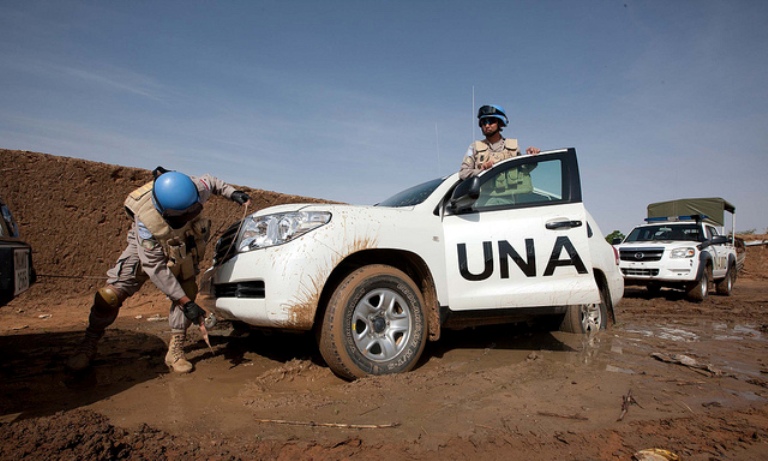UNSC to endorse cuts to Darfur peacekeepers with new review in six months

June 29, 2017 (WASHINGTON) – The United Nations Security Council is expected to endorse the drawdown of peacekeepers in Darfur on Thursday after reaching an agreement over the need for a new assessment by the end of the year.
Initially, the 15- member body had to adopt on 27 June a resolution extending the mandate of Darfur hybrid peacekeeping force for another year after changing its mandate to a peacebuilding operation and reducing 44% of its personnel.
The restructuring and redeployment process is scheduled to be finalised within 12 months in two phases, everyone will take a six-month period.
However, during the discussions some Council members raised the need to assess the troops’ reduction process before the start of the second phase in January 2018, pointing that the security situation remains fragile despite the relative calm.
According to the draft resolution, which will be adopted on Thursday, the Security Council will request that the African Union and the United Nations carry out an assessment of the UNAMID reduction process after the first phase. The review should be completed by January 1 January 2018 before the beginning of the second phase.
The assessment would deal with the progress in the implementation of the first phase, the security situation in the areas concerned by the troops’ withdrawal, the government’s cooperation with the UNAMID, the removal of bureaucratic obstacles to the hybrid operation, and giving the green light or not for the second phase of drawdown process.
Rights groups showed concern over the African Union and United Nations decision to downsize Darfur peacekeeping force, which is mandated mainly with the protection of civilians in the region. They point to the shaky security situation, saying the relative calm is the result of military victories on armed groups but there is no lasting peace agreement.
Also, there are concerns that the displaced civilians may be forced to return to their areas of origins or be attacked by government militias, as the latter suspect them or harbouring armed elements.
The regional instability particularly in South Sudan and Libya and the involvement of Darfurian elements in these conflicts may provide rebels with the needed means to carry out attacks again in western Sudan, observers say.
Earlier this month in a speech to the Security Council, Sudan’s ambassador to the United Nations reiterated his government’s readiness to cooperate with the UNAMID to achieve a smooth and phased withdrawal of peacekeepers from the region.
On the situation of displaced persons, he called on the international community to provide financial support to implement the government plans for the voluntary return to the areas of origin, integration of the camps into nearby cities, or settle the IDPs in the areas they choose in Darfur.
He further contested UN estimations that number of IDPs has reached 2.7 million, saying that the actual number is only 1.8 million. On the humanitarian access, he said 92% of Darfur could be reached without authorisation
(ST)
